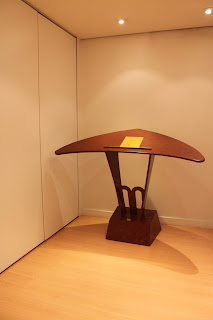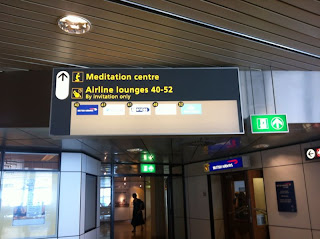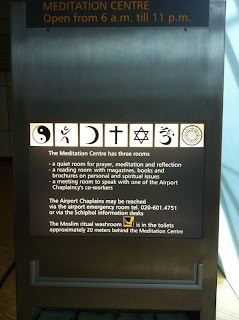This post was originally published in Aquila Style, 18 Jul 2013.
--
Whether by choice or compulsion, sometimes we spend Ramadan away from family. Four Singaporean Muslim women speak to Sya Taha on their experiences fasting overseas.
For most of my life, I have spent Ramadan in my native Singapore. Since my family members have differing schedules, Ramadan was one of the rare periods in the year where we were able to eat together at least once a day.
While many Singaporeans try to spend Ramadan and Eid together, some may have to fast in other countries due to work assignments. Nadia, 27, a young Chinese woman, has experienced fasting a few days each in Hong Kong and Sweden:
Masaini, 29, did her undergraduate degree in Bandar Seri Begawan, the capital of the small nation of Brunei on the island of Borneo. With more than 60 percent of Brunei’s population being Muslim, she found comfort in the similar foods that were available during iftar such as air kathira (a sweet milk drink with coloured syrup and basil seeds), and rice porridge with meat. Despite the similar Malay culture, Masaini found something different in Brunei:
Likewise, Liyana, 28, who spent Ramadan in Kuala Lumpur while she studied there, enjoyed the widespread availability of air kathira, halal-certified food and the company of Muslim students from the Middle East and African countries like Eritrea:
Overall, the experience of fasting overseas was a learning experience for these young Muslim women. Despite the cultural similarities or differences of the places they found themselves fasting, they were able to derive social and spiritual benefits from being with another of God’s many nations and tribes (49:13). While it can be comforting to spend Ramadan together with our family, spending it outside our native countries also brings an array of benefits.
--
Whether by choice or compulsion, sometimes we spend Ramadan away from family. Four Singaporean Muslim women speak to Sya Taha on their experiences fasting overseas.
For most of my life, I have spent Ramadan in my native Singapore. Since my family members have differing schedules, Ramadan was one of the rare periods in the year where we were able to eat together at least once a day.
While many Singaporeans try to spend Ramadan and Eid together, some may have to fast in other countries due to work assignments. Nadia, 27, a young Chinese woman, has experienced fasting a few days each in Hong Kong and Sweden:
The wonderful thing about fasting overseas is the high level of energy and enthusiasm I feel throughout the day, despite the lack of food or drink. Somehow the experience of being in a foreign land assuages any hunger or thirst or lethargy I may otherwise feel.The variety of women who observe Ramadan abroad mirrors the diverse experiences they have. Syah, 24, a young Malay woman who did her undergraduate degree in Canada, saw her experiences change over the four years she spent in Vancouver:
It was very different from the first year I was here until now. The first year, I was pretty much alone in the dorms. It was winter so the hours were shorter. The dorms had a cafeteria which had this system of giving food from the previous day as the morning meal for those who fasted. But for sahur, I would just eat some cereal since there wasn’t a kitchen. My roommate was really nice and would often eat her dinner when I broke fast so I wouldn’t have to eat alone.Syah started out rather isolated from Vancouver’s Muslim community, its ethnic segregation making it hard for her to connect. Now engaged to marry a white Canadian Muslim man, she says the difficulties largely persist, despite having eased somewhat:
Now, I’m a bit more connected to the Muslim community for Ramadan since I’ve made Muslim friends. Even so, I still pretty much fast alone otherwise, just with my fiancé because the Muslim community is still pretty rigid in terms of who they accept, [especially] us as an interracial couple. The Muslim community here in Vancouver is very divided along racial lines and there tends to be racial exclusivity in mosques, events, and so on.On the other, young Malay women who have studied and lived in countries that have similar cultures and customs find a Muslim community that is welcoming. The presence of similar foods also makes for a more comforting Ramadan spent away from home.
Masaini, 29, did her undergraduate degree in Bandar Seri Begawan, the capital of the small nation of Brunei on the island of Borneo. With more than 60 percent of Brunei’s population being Muslim, she found comfort in the similar foods that were available during iftar such as air kathira (a sweet milk drink with coloured syrup and basil seeds), and rice porridge with meat. Despite the similar Malay culture, Masaini found something different in Brunei:
My fondest memory was the Islamic atmosphere and ambience. I could feel the strong spiritual aura that is not present in Singapore.
Likewise, Liyana, 28, who spent Ramadan in Kuala Lumpur while she studied there, enjoyed the widespread availability of air kathira, halal-certified food and the company of Muslim students from the Middle East and African countries like Eritrea:
My friends and I always enjoyed the luxury to choose where to break our fast. The mosque in our campus always surprised us with different types of food every single day. There would always be a pool of students, both local Malaysians and internationals, who swamped the mosque area in the evening, filling up the seats while waiting for the adzan to break their fast. That was when I got the chance to get to know other students whom I had not met before.Liyana has fond memories of the generosity of student associations in her university who sponsored food for iftars, and warmheartedly recalled discovering a surprising benefactor behind one of these iftars:
My friends and I were on our way to the campus bazaar to buy food for iftar when we were stopped by an Arab man who encouraged us to break our fast at the campus canteen. He told us to sit down while he continued to prepare the food. I saw huge portions of food being served: rice with lamb, salads, desserts and drinks. We were also given a Qur’an each. Exhilarated, I asked the man if he knew who had sponsored this iftar. He told me it was the courtesy of an anonymous Palestinian man. I was stunned and touched at the same time, to think of how much most Palestinians had gone through but that this had never stopped them from radiating blessings in the lives of others. It was a great reminder to myself.Despite not looking like a typical Muslim, especially with her Chinese appearance, Nadia also points to experiencing the kindness of strangers when fasting overseas:
One of the things I’ve noticed about being a foreigner in a strange land during the fasting month is how warm and welcoming local Muslims always are towards their fellow Muslims who are travelling and fasting away from home. At times I’d even receive offers to break the fast with these locals, indulge in their local cuisines and join in congregational salat with them in a show of shared solidarity for a fellow fasting Muslim. Such occasions are both memorable and precious. I’m very much aware that I may not have been privy to such offers or opportunities had it not been for my status as a Muslim, and the occasion of the fasting month.Thanks to such overwhelmingly positive experiences, even after all these years, Liyana sometimes longs to spend Ramadan again in her former university, where she had the chance to befriend many women from all over the world:
One of those moments that I truly miss during Ramadan is getting to know women from various countries and cultures in my campus mosque. Most of the married women would bring their children to the mosque, and they would get request any sister in the mosque who was free to help take care of their children while they were doing the tarawih prayer. Every sister would help each other. It was a place for Muslim women to befriend other Muslim women – each had her own story on how she ended up in Malaysia. It was a wonderful gathering of women.
Overall, the experience of fasting overseas was a learning experience for these young Muslim women. Despite the cultural similarities or differences of the places they found themselves fasting, they were able to derive social and spiritual benefits from being with another of God’s many nations and tribes (49:13). While it can be comforting to spend Ramadan together with our family, spending it outside our native countries also brings an array of benefits.











